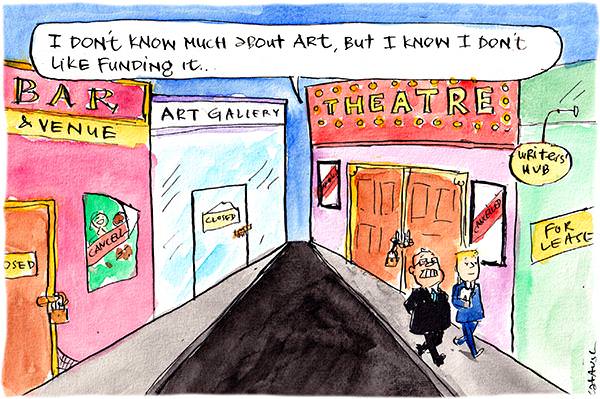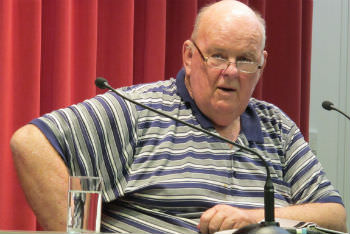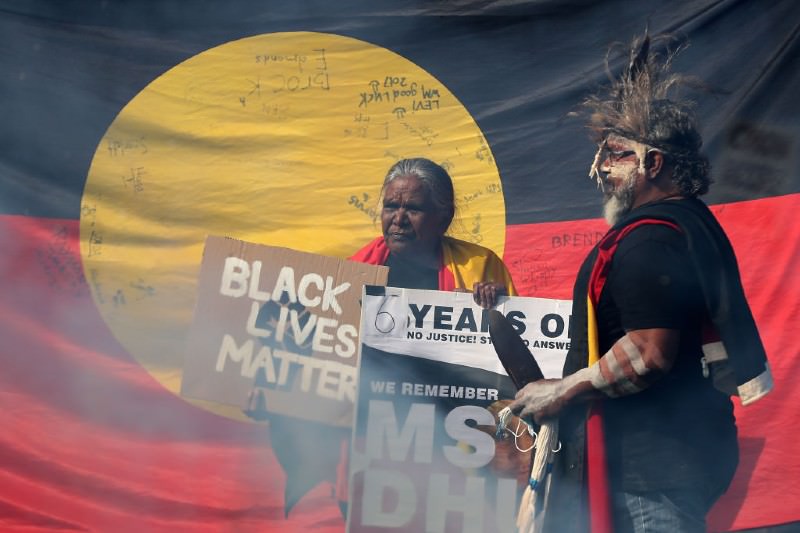Keywords: Paul
There are more than 200 results, only the first 200 are displayed here.
-

RELIGION
- Justin Glyn
- 02 December 2020
10 Comments
3 December has a couple of interesting resonances for this blind Jesuit. It is the feast day of St Francis Xavier — Jesuit missionary extraordinaire. It is also the International Day of Persons with a Disability. It seems to me that the two anniversaries have more than a little in common — both in what they tell us about the limits and the promise of human life in the image of God.
READ MORE 
-

RELIGION
- Ross Jones
- 01 December 2020
6 Comments
Approaching the walled and caged building where the sentence was carried out, our young fellows have always been struck by something of a paradox proclaimed in two signs at the door: ‘Bureau of Corrections’ alongside ‘Lethal Injection Chamber’. They were quick to seize upon it. ‘How can you correct and rehabilitate a person after you have killed him?’ they would ask.
READ MORE 
-

AUSTRALIA
- Binoy Kampmark
- 24 November 2020
21 Comments
The discussion in Australia as to how such atrocities are to be approached is telling. The call for responsibility has varied by degrees. Most tend to some variant of the rotten apple theory: a few particularly fruits that may be isolated and extruded from the barrel. Culpability can thereby be confined, preserving the integrity of other military personnel and, importantly, political decision makers.
READ MORE 
-

AUSTRALIA
- Tim Robertson
- 05 November 2020
Bosses give any number of reasons, often focused on some vaguely defined notion of productivity, why they do or don’t support remote working, but ultimately it comes down to a single, fundamental question: what is the ideal balance between reducing expenditure and surveilling workers?
READ MORE 
-

RELIGION
- Marilyn Hatton
- 27 October 2020
37 Comments
Phyllis Zagano’s latest book Women: Icons of Christ is a must read for all who desire equality for women in our world and an inclusive practice of Catholic faith. The critical issue Zagano presents in this book is that ordaining women to the deaconate is a not a new or forbidden act in Catholic history but rather a return to a practice that endured for hundreds of years.
READ MORE 
-

RELIGION
- Bill Uren
- 15 September 2020
250 Comments
Whereas the Vatican II document sought to engage with, and to respect, the autonomy of the modern world and its science, only too many of the Vatican’s official statements over the past fifty years have effectively resiled from that commitment.
READ MORE 
-

AUSTRALIA
- Justin Glyn
- 10 September 2020
9 Comments
While the legislation was proposed as something of a measure of last resort, the numbers already tell a different story. Unfortunately, many of us with a disability look at these figures (and at the proposed legalisation of euthanasia in New Zealand, which will be voted on later this year) with a weary mix of familiarity and horror.
READ MORE 
-

AUSTRALIA
- Justin Glyn
- 25 August 2020
7 Comments
The pandemic has lit up the areas in which our neoliberal economies are basically unfit for the purpose of providing healthy and safe environments — whether it be privatised aged care homes and quarantine services or ‘the gig economy’, which forces sick people to ‘soldier on’ infecting people as they go. One area that has been rather less considered, however, is disability.
READ MORE 
-

ARTS AND CULTURE
- Julie Perrin
- 18 August 2020
31 Comments
The capacity to story our experience is a powerful tool for reflection and understanding. As adults we learn that no story is pure and we are capable of telling ourselves spin, but the shaping of experience into story is the bread and butter of our lives. Narrative, it has been said, is a primary act of mind.
READ MORE 
-

ARTS AND CULTURE
- Barry Gittins
- 16 July 2020
11 Comments
Identifying the true nature of things, and capturing their horror or charm? Let’s give it a crack. I recognised and recognise still that there are few humans who will ever approach Les Murray's heights of linguistic mastery and vision of life. But one thing I felt I had in common with Les, apart from our shared rustic heritage, was anger.
READ MORE 
-

AUSTRALIA
Ideology is a powerful presence in our lives. It works its way into our consciousness through the dominant discourses of government, media, institutional religion, legal frameworks, popular culture, advertising, all the means at the disposal of the powerful. Once we learn to recognise it we see it everywhere. If it feels like we were born into it, it is because we were.
READ MORE 
-

AUSTRALIA
People ask why it took the death of George Floyd to make so many Australians stand up. His experience mirrored that of so many Aboriginal people who have died while in custody. His dying words ‘I can’t breathe’ echo through our hearts, because this isn’t the first time a Bla(c)k man has uttered those words while being brutally arrested for a crime most white people would get a slap on the wrist for.
READ MORE 